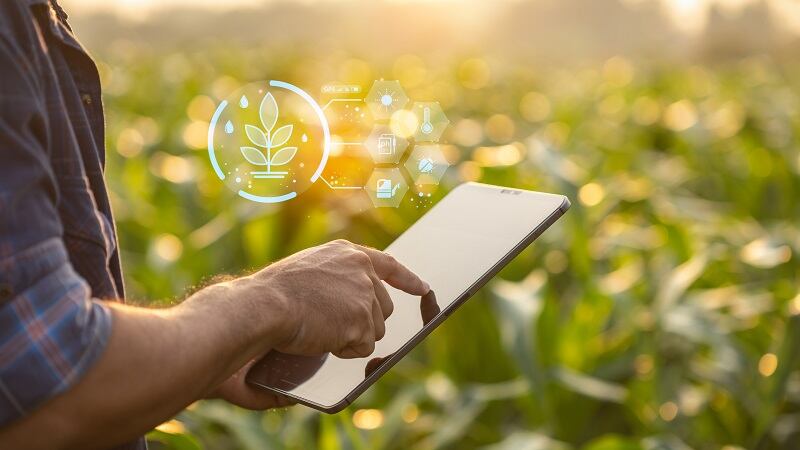IRRI launched the WhatsApp-based chatbot to strengthen digital agricultural support for farmers in Odisha.
“The idea for PaddyMitra – Precision Advisory for Data-Driven Yields - Management of Irrigation, Timing, and Resource Application – came from a simple observation that farmers often struggle to access timely, reliable, and localised advice. We wanted to bridge that gap by putting data-driven agricultural knowledge directly into farmers’ hands,” said Shalini Gakhar, PhD, Data Scientist - Interoperability and Data Science Life Cycle, IRRI.
PaddyMitra arrives at a critical moment, helping farmers navigate unpredictable weather, rising input costs, and the increasing demand for accurate, real-time decisions with the help of AI, Gakhar told AgTechNavigator.
“Our goal was not just to build another app, but a digital companion that supports real-time decision-making and empowers both farmers and extension staff. Under the CGIAR Digital Transformation Accelerator, the chatbot reflects our broader vision to use technology as an equaliser, ensuring every farmer, regardless of location or literacy, can benefit from precision agriculture,” she said.
Inclusive and localised
Even with many agricultural apps on the market, Gakhar noted how PaddyMitra distinguishes itself through its localisation
“It has been designed specifically for Odisha’s conditions and cropping systems, built on research from IRRI, and delivered through WhatsApp – a platform farmers already use daily. This makes it practical and inclusive, allowing even those with limited digital literacy to benefit from personalised, trustworthy recommendations.”
The tool was beta-tested on around 2,000 farmers. Central to PaddyMitra’s development was a framework of inclusive design, ensuring the tool served all farmers effectively.
“Agriculture is diverse farmers differ in language, literacy, resources, and access, so digital innovations must be built with those realities in mind. An inclusive design framework ensures that technologies are co-created with farmers, support local languages and voice-based access, and remain affordable, relevant, and easy to use. By embedding inclusivity into every stage of development, PaddyMitra ensures that technology becomes an equaliser rather than a divider,” said Gakhar.
She added: “What’s powerful is that it’s built right into WhatsApp, so farmers don’t need to download a new app or learn something complicated it’s right there on a platform they already use every day. It also helps bridge the digital divide, reaching those who may not have access to advanced digital tools.”
According to press materials, PaddyMitra offers instant recommendations on nutrient management, weather-based advisories, and generic weed control.
The chatbot enables farmers to seek advice conveniently using audio or text queries, receiving personalised recommendations within seconds.
“Farmers today are dealing with a whole set of challenges that go beyond just growing the crop, they have to manage nutrients efficiently, make sense of changing weather, and keep track of information coming from so many different formal and informal channels. That’s exactly where PaddyMitra steps in,” said Gakhar.
“PaddyMitra will help farmers make better decisions, improve yields and profits, and reduce uncertainty. In short, it’s about turning data into something that truly works for the farmer, in their own language and on their own terms.”
IRRI hopes to expand the use of PaddyMitra beyond Odisha.
“We see this as a model that can easily be adapted for other states and even other crops. Its core strength lies in its flexibility it’s built to integrate local data, languages, and government systems, so with the right partnerships, we can quickly scale it across regions,” said Gakhar.
Building trust
At present, it faces challenges getting farmers to adopt the app.
“One of the key challenges we foresee is building trust. Farmers are more likely to use a digital advisory tool when it’s endorsed or integrated into familiar state platforms and supported by their local extension systems. That’s why we’re working closely with government departments and local institutions to ensure that PaddyMitra complements existing systems rather than competing with them,” Gakhar said.
She defined PaddyMitra’s success as helping farmers turn scientific insights into practical, data-driven decisions on fertiliser use, crop management, and weather response, with information flowing seamlessly from research institutions and government systems to their phones.
She added: “We’ll consider PaddyMitra successful when it truly becomes a trusted digital companion for farmers, one that improves their yields, income, and confidence, while also reducing resource waste and environmental impact.
“And beyond that, success is when this model can be scaled and adapted to other regions, and languages, proving that digital tools can make agriculture not only smarter but also more inclusive and sustainable.”


